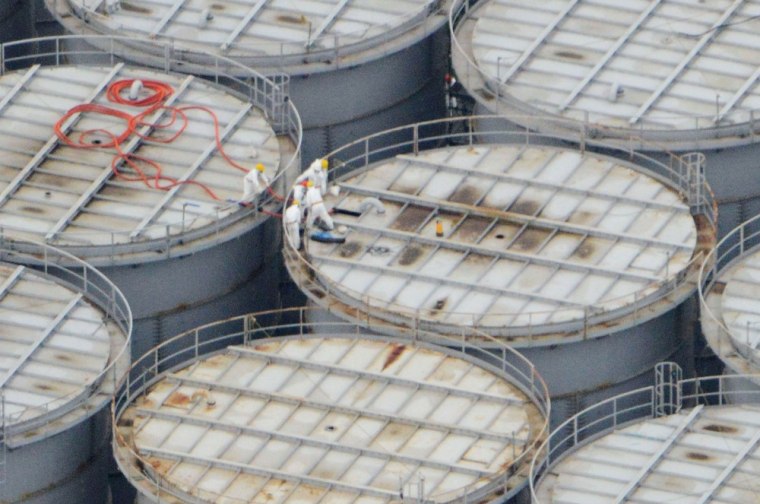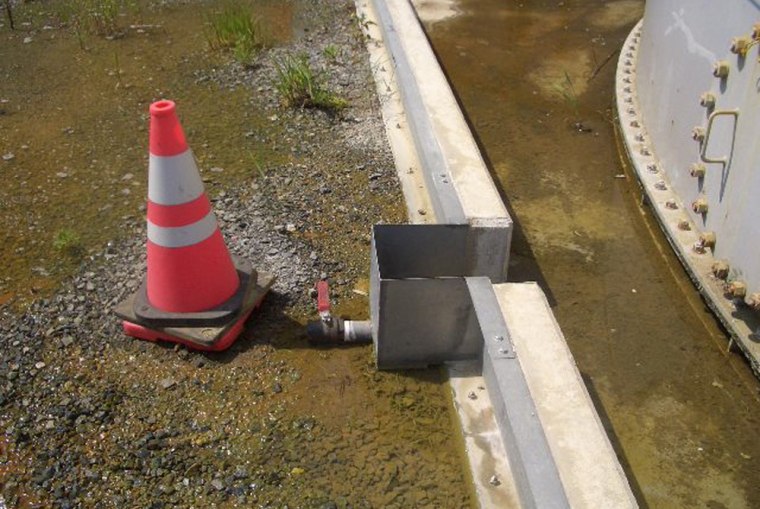
TOKYO - Japan's nuclear crisis escalated to its worst level in two years on Wednesday when the national regulator said it was set to raise its warning on crippled Fukushima Daiichi plant.
The nuclear regulator said the threat level at the quake-crippled plant might be increased to “serious”, and added it was worried that further water storage tanks at the facility might leak.
It would be the first time the country has increased a warning on the International Nuclear Event Scale (INES) since the March 2011 reactor meltdowns that followed the huge earthquake and tsunami.
The final decision on as to whether to raise the warning level - from 1, announced on Tuesday, to 3 on a 7-scale system - would be deferred to the U.N.’s International Atomic Energy Agency, the watchdog said.
Wednesday's crisis came after water spilled showed higher levels of radiation than previously thought, Japan’s Nuclear Regulation Authority said in a statement on its website. In addition, "there were no additional 'protective layer' of measure left [to stop the leak]," it said.
A maximum 7 was declared at the battered plant after explosions led to a loss of power and cooling two years ago, which made Fukushima the worst nuclear accident since Chernobyl almost 30 years ago.
The regulator's statement came just one day after the plant’s operator said a leak had spilled some 300 tons of radioactive water into the ground, the latest in a series of embarrassing revelations involving the station.
On April 5, a cooling system at the plant failed for the second time in a month after an outage caused by construction work to keep out rats suspected of setting off the earlier blackout. The following day, the company announced that as much as 120 tons of radioactive water may have leaked from a reservoir.
On June 19, TEPCO said high levels of toxic Strontium-90 were been found in groundwater Fukushima.
Two weeks ago, the nation's nuclear regulator reprimanded the utility for its poor handling of containing contaminated underground water from seeping into the ocean. And on Aug. 7, the government estimated that the damaged plant was leaking about 300 tons of contaminated water into the ocean every day.
An official from the plant operator apologized for any worries the leaks may be causing.
"I would like to apologize for concern we have created with this problem of contaminated water," Tokyo Electric Power Company's Executive Vice President Zengo Aizawa told journalists at a press conference Wednesday.
TEPCO's share plunged by around 10 percent on the news on Wednesday.
Also on Wednesday, China said was "shocked" that the plant was still leaking radioactive water two years after it was destroyed, the Chinese Foreign Ministry said, according to Reuters.

In a statement faxed to the news agency, the China’s Foreign Ministry said it "hopes that the Japanese side can earnestly take effective steps to put an end to the negative impact of the after-effects of the Fukushima nuclear accident."
Meanwhile, the operators of the plant have started to remove the contaminated soil around the breached tank and are expected to complete the removal of the remaining radioactive water inside the defective tank by the end of day on Wednesday.
The Chairman of the Japanese nuclear regulator Shunichi Tanaka said at a press conference that it may not be appropriate to simply apply the international scale on Fukushima because the incident was ongoing.
Reuters contributed to this report.
Related: